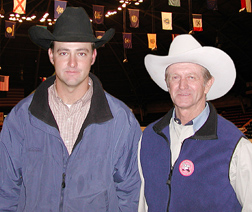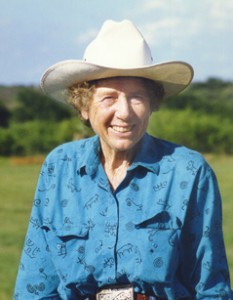
On Saturday, November 26, the National Cutting Horse Association will celebrate its 50th Futurity with a once-in-a-lifetime Champions’ Cup competition featuring all the living Futurity champion open riders invited, including Tag Rice who will be aboard Chiquita Pistol, the mare he showed to win the 2002 NCHA Futurity and the only living horse that has been an NCHA Triple Crown Champion.
In addition to her Triple Crown trophy, Chiquita Pistol shares a close connection to thoroughbred Triple Crown winner Assault. Helen Groves, the breeder of Chiquita Pistol’s dam, Miss Chiquita Tari, is the daughter of the late Robert Kleberg Jr., who bred Assault.
Chiquita Pistol, bred by Tooter Dorman and owned by his daughter, Debra Dorman Moore, was sired by Smart Little Pistol and out of Miss Chiquita Tari, a 1982 foal who traces her lineage to Old Sorrel through her King Ranch-bred sire Pay Twentyone. Robert Kleberg was the grandson of King Ranch founder, Richard King, and it was Kleberg who developed the Old Sorrel line.

“Consistency – that’s what he was bred for,” said Helen Groves of Pay Twentyone. “Daddy did not like a horse that gave you more than you needed to get the job done. He wanted a cool head on a horse.â€
Pay Twentyone, by El Pachuco Wimpy, was trained for Groves’ Silverbrook Ranch by Red Stephenson, who rode him to place ninth in the 1973 NCHA Futurity. Among Futurity spectators that year was Bob Kleberg, who came to watch his daughter’s horse. Although he had been to several of the early-day cutting events in Fort Worth, it was the first time Kleberg had attended the Futurity.
“He was so impressed with the roster of horses in the Finals,†Groves remembered. “Most of the horses went back to King Ranch breeding.” As a result Kleberg was inspired to focus King Ranch’s Quarter Horse breeding program on cutting competition and to hire Buster Welch as trainer and breeding consultant.
When Welch went to work for King Ranch, he was leading the NCHA World standings on Mr San Peppy, a stallion he owned in partnership with Jay Agnew, and a horse that was especially attractive to Kleberg because of Old Sorrel in his pedigree. Mr San Peppy and his son Peppy San Badger were purchased by Kleberg within a year of each other and launched King Ranch and the cutting industry into a new era.
Pay Twentyone was one hundred percent King Ranch breeding, with seven out of eight lines in three generations tracing to Old Sorrel. Old Sorrel sons in his pedigree include Solis, Tino, and Tomate Laureles. Wimpy, his paternal grandsire, sired by Solis, was awarded AQHA registration #1. Wimpy’s dam, Panda, is also an Old Sorrel daughter.
The “Peppy†in the pedigree of Mr San Peppy, and thus Peppy San Badger, also derived from Old Sorrel, although not from the same lines as Pay Twentyone. Mr San Peppy’s dam, Peppy Belle, is by Pep-Up, by Peppy. Peppy was sired by Little Richard, by Old Sorrel, and out of an Old Sorrel daughter.
All of the horses bred by King Ranch during Kleberg’s life were ridden on the ranch and evaluated before they were bred. “There were a lot of criteria,†explained Groves. “They wanted to see if they had any cow and whether they were smooth and whether they would behave themselves. They also wanted to see if they would keep their condition on the range or if they would have to be fed.
“My father never bred a mare that wouldn’t keep her condition under the same circumstances as the other horses. He wanted horses that were all-around horses.â€
Groves noted that King Ranch mounts descended from Old Sorrel could “jump like deer,†and she often rode to the hounds near Silverbrook Farms in Virginia on a ranch horse descended from Peppy.
Her mother had ridden hunters, as well, but it was Groves’s father who taught her the art of working cattle. She watched her father and uncles ride the Old Sorrel and his progeny on roundups.
“I remember Wimpy and Solis and all those great horses,†said Groves, who rode Old Sorrel at the tender age of four.
“Daddy rode Wimpy’s mother, Panda. He loved her. He roped off of her and cut on her, and once he took me with him when he went deer hunting with her. He shot a deer that he’d rattled up, but when he tried to load it on Panda, he didn’t get that done. That was one thing she did not do.â€
In 1972, the year that Groves showed in her first cutting horse competition, she hired Tooter Dorman to manage a ranch she owned near Oakwood, Texas, and remembered Debra Dorman, who was about 12 at the time. “She loved to ride and she was as cute as could be,†said Groves. “She’s been a capable hand for a long time.â€
It was for Debra that Dorman purchased Miss Chiquita Tari. “She was wonderful,” said Groves. “She could get down and handle it because she was strong and quick. A lot of horses, if they get down like that, can only handle one or two moves.â€
Tag Rice saw a lot of Miss Chiquita Tari’s best qualities in her daughter, Chiquita Pistol. “I love that mare,” he said. “When a cow’s trying her, that’s when she looks her best. It doesn’t seem to matter what you put in front of her, she can handle it.â€
Cutting fans will have the chance to see Tag Rice and Chiquita Pistol together again on November 26, along with Buster Welch, who showed Peppy San Badger to the 1977 Futurity win, and a host of other Futurity champions.
